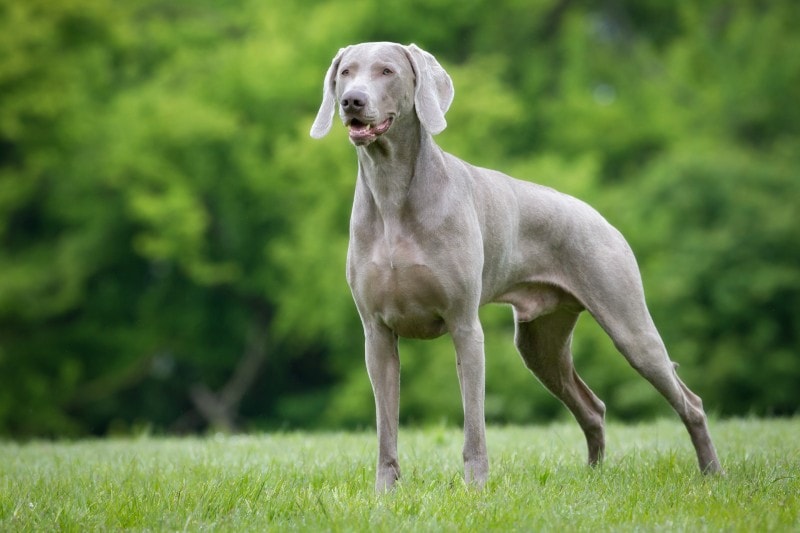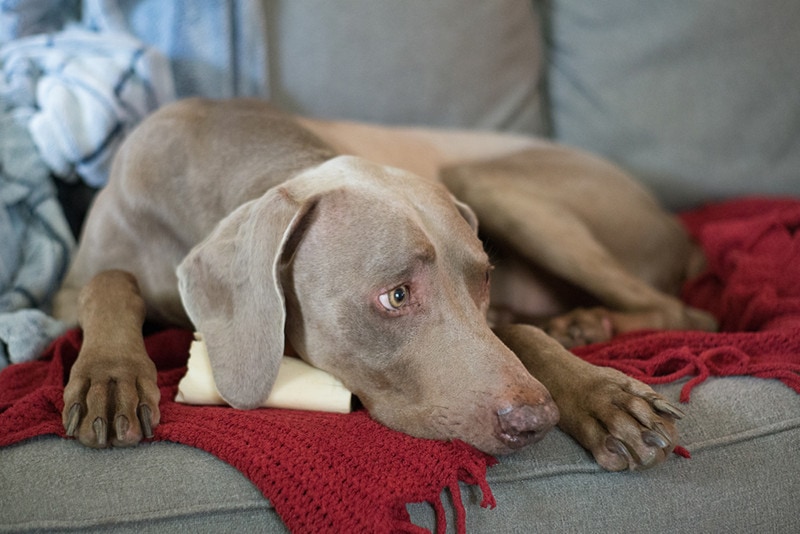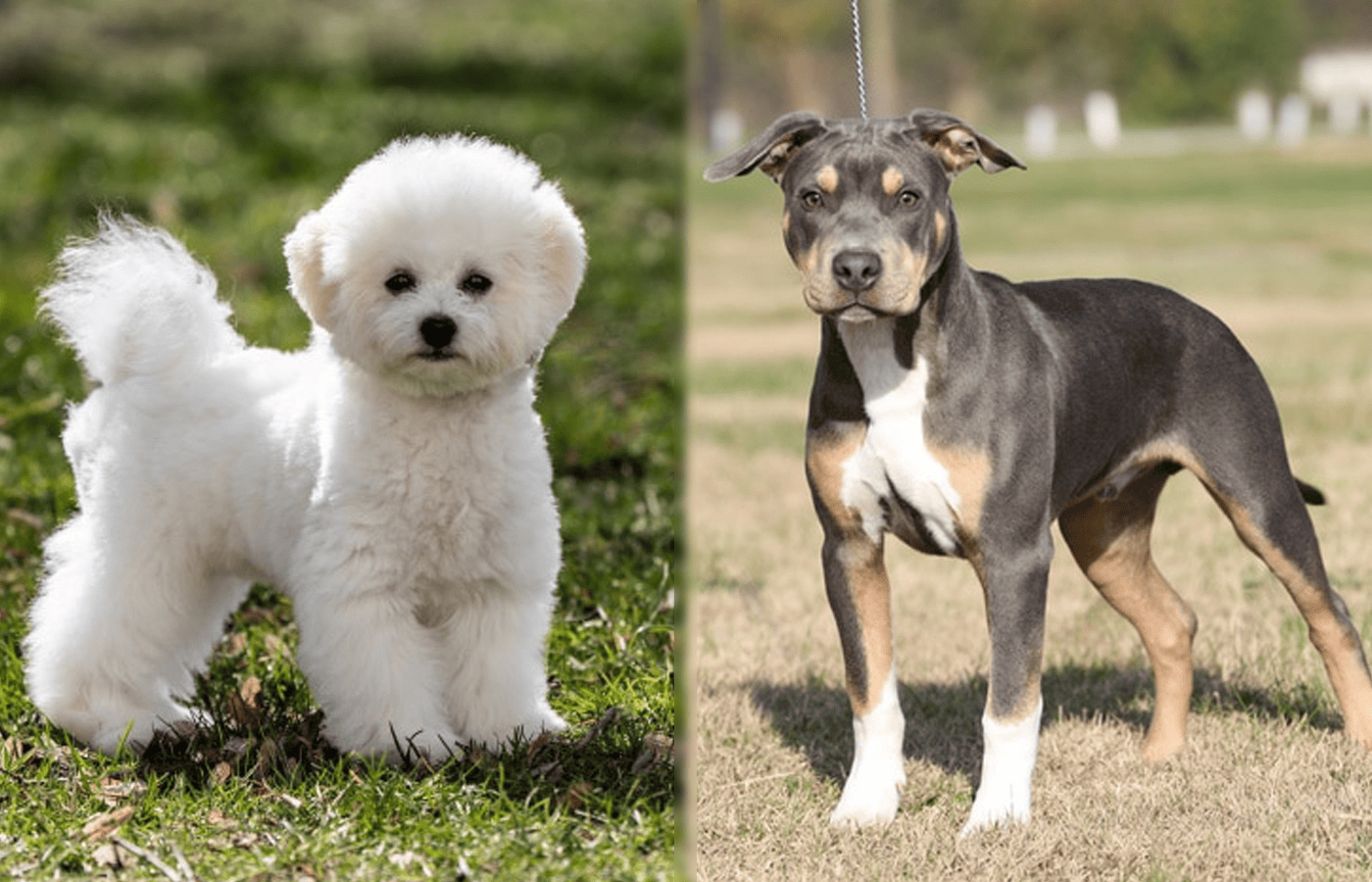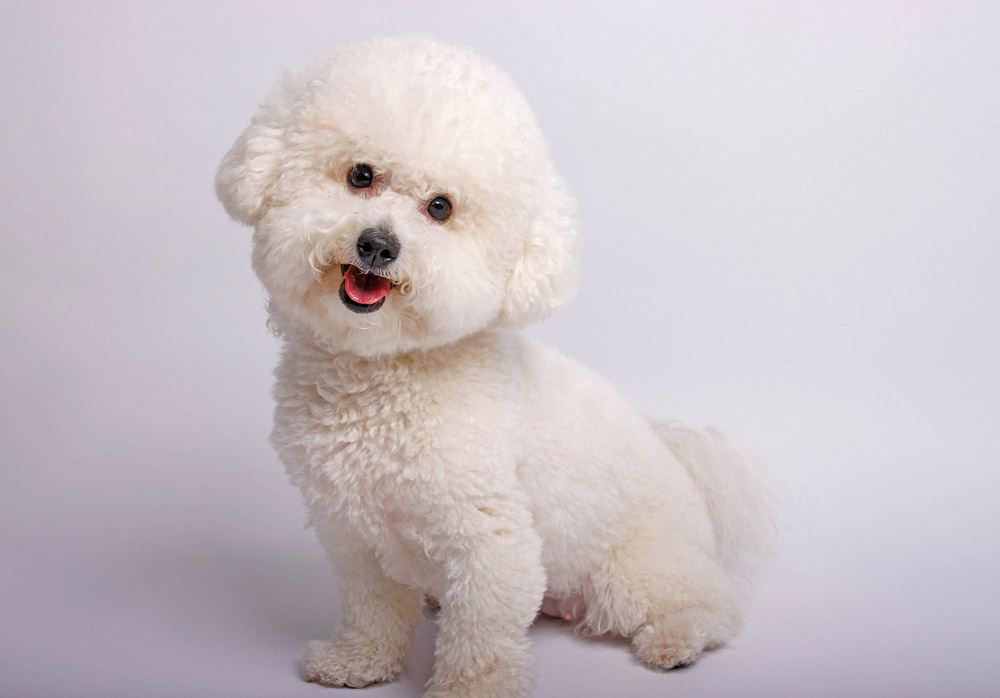Click to Skip Ahead
Weimaraners are known for their striking appearance, intelligence, and strong personalities. But if you’re a Weimaraner owner, you might have noticed a peculiar behavior that leaves you puzzled: nooking. In this article, we’ll explore why your Weimaraner may be nooking, the history and behavior of Weimaraners, and some tips and tricks to help redirect their behavior.
A Brief History of Weimaraners
Weimaraners were originally bred in Germany for hunting large game. They’re a versatile breed, known for their endurance, agility, and keen sense of smell. Due to their intelligence and strong bond with their owners, Weimaraners have also found success in various dog sports and as service animals.

What Is Nooking?
Nooking is a behavior where your dog suckles or chews on soft items like blankets or stuffed toys. Your dog may twist the fabric so that it resembles a nursing nipple. It’s common in Weimaraners and other similar breeds, but it can be concerning if it becomes excessive or destructive. Nooking may occur for various reasons, including early weaning, anxiety or stress, boredom, or genetic predisposition.
The Psychology Behind Nooking
Nooking can be seen as a form of self-soothing, similar to how some people bite their nails or twirl their hair when they’re nervous. For dogs, the act of suckling or chewing on soft items can provide a sense of comfort and security, helping them cope with stress or anxiety.
The 4 Possible Reasons for Nooking

1. Early Weaning
Some dogs may have been weaned too early from their mother, causing them to seek comfort through nooking. Puppies usually begin the weaning process around 4 weeks of age, but if this happens earlier, it might lead to an increased need for oral stimulation and comfort-seeking behaviors like nooking.
2. Anxiety or Stress
Nooking can be a coping mechanism for dogs experiencing anxiety or stress, providing a sense of security and self-soothing. Weimaraners are known for their strong bond with their owners, which can sometimes result in separation anxiety when left alone. Identifying the sources of stress in your dog’s life and working to minimize them can help reduce their reliance on nooking as a coping strategy.
3. Boredom
Weimaraners are high-energy dogs that require mental and physical stimulation; nooking might be an outlet for their boredom. Ensuring your Weimaraner receives enough exercise and engaging activities throughout the day can help prevent boredom-related nooking. Consider incorporating interactive toys, puzzle feeders, or regular training sessions to keep your dog entertained and mentally stimulated.
4. Genetic Predisposition
Some Weimaraners may have a genetic tendency toward nooking or other oral fixations. While there is limited research on the genetic factors influencing nooking behavior, it is possible that certain breeds or individual dogs may be more prone to this behavior. In these cases, working with a professional dog trainer or behaviorist can help you develop strategies to redirect your dog’s nooking tendencies in a healthy and constructive manner.
Managing Nooking Behavior

If your Weimaraner’s nooking behavior becomes excessive or destructive, it’s essential to address the issue. Here are some tips for managing nooking.
- Provide appropriate chew toys: Offer your dog a variety of safe and durable chew toys to redirect their oral fixation away from blankets and other soft items.
- Establish a consistent routine: A predictable daily routine can help reduce anxiety and stress, which may contribute to nooking behavior.
- Increase exercise and mental stimulation: Engaging your dog in regular physical activity and mental challenges can help alleviate boredom and decrease nooking tendencies.
- Seek professional help: If your dog’s nooking behavior persists or worsens, consult with a veterinarian, dog trainer, or behaviorist to address any underlying issues and develop a tailored plan for managing the behavior.
By understanding the potential causes of nooking and implementing appropriate management strategies, you can help ensure that your Weimaraner’s nooking behavior remains a harmless and non-destructive habit.
Other Breed-Specific Issues in Weimaraners
Weimaraners are prone to separation anxiety due to their strong attachment to their owners. This can lead to destructive behaviors, including nooking. Ensuring your Weimaraner has a consistent routine, socialization, and gradual desensitization to being alone can help reduce anxiety-related issues.

Final Thoughts
Nooking is a common issue in the Weimaraner breed that can be due to genetic predisposition, anxiety or stress, boredom, early weaning, or other issues. If your Weimaraner is nooking, it usually isn’t a huge issue, unless it just bothers you. In which case, there are several ways to discourage nooking and redirect your Weimaraner and make sure they have plenty of mental and physical stimulation.
See Also:
- American Pit Corso (Cane Corso Pitbull Mix): Guide, Pictures, Care & More
- Cane Corso Shar Pei Mix: Guide, Pictures, Care, and More
Featured Image Credit: SillyDogPhotos, Shutterstock










